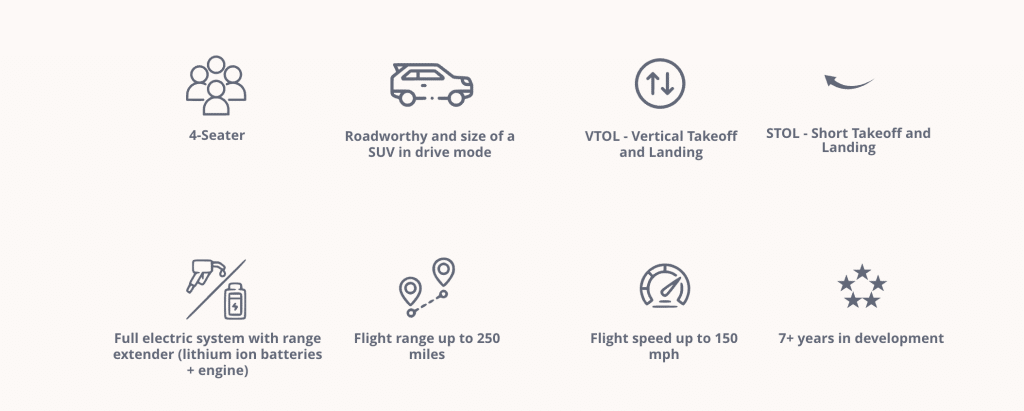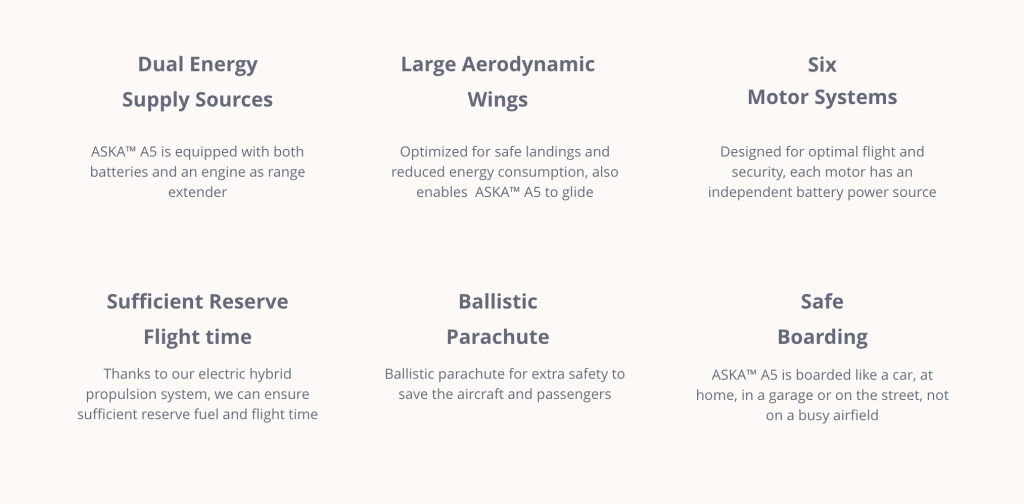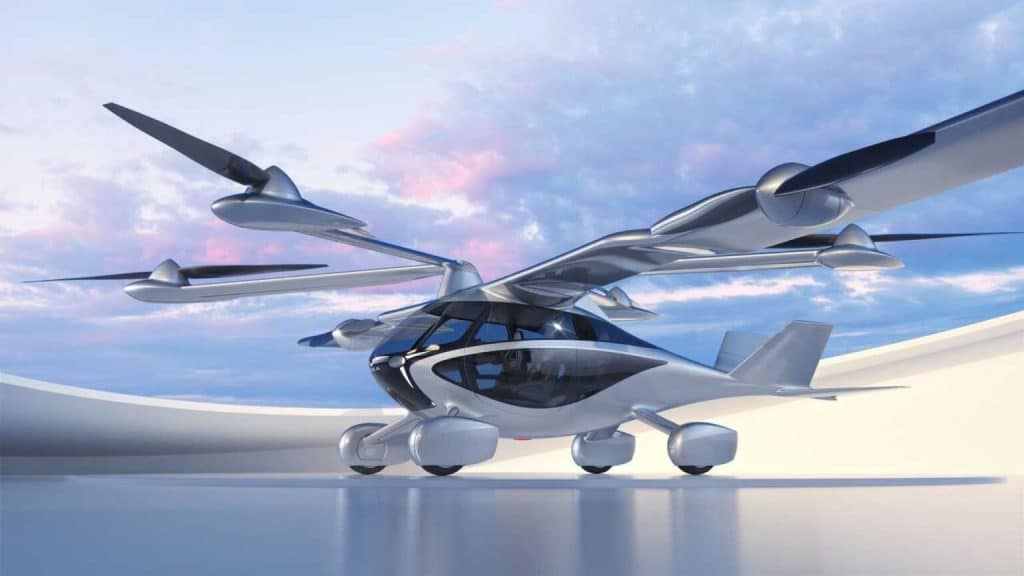Shattering the boundaries of traditional transportation, ASKA™ A5 presents a bold vision of the future with its roadable electric hybrid VTOL (Vertical Takeoff and Landing) vehicle.
The ASKA A5, a four-seat electric hybrid VTOL, represents a new class of multi-domain vehicles that can seamlessly transition between driving on the road and flying in the sky. Designed for safety and efficiency, the ASKA A5 boasts a flight range of 250 miles and offers a glimpse of a future where the dream of flying cars becomes a reality.
After seven years of development, Northern California-based startup ASKA revealed its prototype in 2023. It plans to launch the vehicle for commercial purchase by 2026. The ASKA A5 is a hybrid model powered by electric motors and traditional combustion engines, making it a versatile solution for transitioning to electric transportation.
A New Era of Mobility: From Taxis to Rentals
ASKA envisions a future where flying cars are used as luxury rentals or urban air taxis. Priced at $800,000, the ASKA A5 has already attracted attention from 100 potential buyers. Working closely with the FAA and the National Highway Traffic Safety Administration (NHTSA), ASKA ensures that its vehicle meets the highest standards for both road and airworthiness. The ASKA A5 is the world’s first flying car to enter the FAA’s type certification process, marking a significant milestone for drive-and-fly eVTOLs.
ASKA’s full-scale prototype has also received a Special Airworthiness Certification from the FAA for flight testing, moving it closer to mainstream use.
Unique Capabilities: Vertical Takeoff and Landing Anywhere

One of the A5’s standout features is its ability to take off vertically and conventionally, eliminating the need for long runways like those used by commercial airplanes. This makes it adaptable to urban environments. ASKA’s CEO and co-founder, Guy Kaplinsky, envisions converting old gas stations into landing pads and repurposing existing infrastructure to accommodate electric air vehicles as the world moves away from fossil fuels.

With its six propellers and innovative design, the ASKA A5 offers a flying experience. The vehicle can reach a cruising speed of 150 mph and is equipped with a 100 kWh battery pack alongside a gas-powered range extender for additional power, ensuring longer flights and more excellent reliability.
Combining Aerodynamics with Comfort
The ASKA A5 delivers a premium driving experience thanks to its in-wheel motor technology. This setup allows the wheels to be placed outside the fuselage, improving aerodynamics and freeing up passenger space. With seating for four, a high driving position similar to an SUV, and ample ground clearance for short takeoff and landing (STOL) mode, the A5 is designed for both comfort and practicality.
When in driving mode, the A5’s wings fold neatly over the body, making it road-ready. While currently a manual process, the ASKA team is working on automating this feature for added convenience.
A Glimpse into the Future: Driving Plane, Not Flying Car
Although it’s unlikely that flying cars will become widely available to the public anytime soon, especially with the ASKA A5’s $800,000 price tag, the vehicle symbolizes human ingenuity and the potential for transformative technology. Kaplinsky and his team prefer to call their creation a “driving plane” rather than a “flying car,” as it’s not fully street legal yet but demonstrates the enormous possibilities of future transportation.
Innovation in Motion: A New Approach to Sustainable Solutions
While the ASKA A5 may not become a common sight in suburban driveways, it pushes the boundaries of what’s possible in transportation. Innovative approaches like ASKA’s are crucial as the world shifts away from fossil fuels. The automobile industry continues to explore alternatives such as hydrogen fuel-cell technology, biofuels, and hybrid plug-ins, but innovation like this truly challenges traditional constraints.
If we can design flying cars, a future without fossil fuels is within reach. ASKA’s engineers are proving that with bold thinking, even the wildest dreams can take flight.


